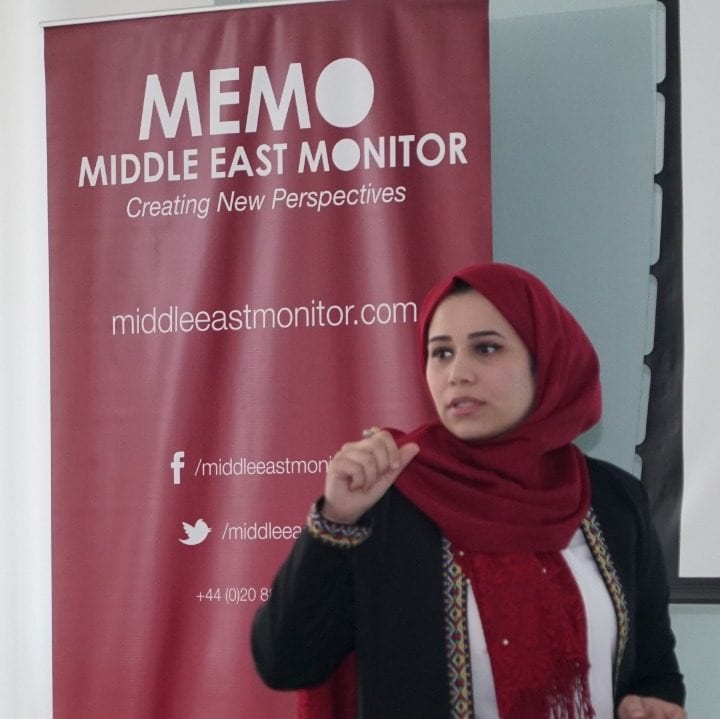In Brazil’s Rio Grande do Sul state, which is the home in exile for thousands of Palestinians, a Brazilian film about Palestine and Palestinian refugees is doing the rounds. Documentary Brazilian Palestine is directed by Brazilian filmmaker Omar L de Barros Filho. It focuses on the lives of Palestinian families who moved to southern Brazil after being expelled from their land in 1948. The film reveals the links that still exist between the Palestinians and their occupied homeland, through frequent visits. The intention behind the film was to touch the consciousness of the new generations in the Palestinian diaspora about the tragic situation in occupied Palestine.
“I wrote and directed this film where characters reveal their pain in depth,” Barros Filho explained to me. “Palestine is always present in their hearts, even while they remain grateful for the opportunities they have in their new country.”
The film was shown on Brazilian TV in 2018, with a lot of exposure on social media. Moreover, it has featured in many exhibitions and

Omar L de Barros Filho
film festivals in Brazil and abroad. “I didn’t think that something like this could happen due to the many difficulties we faced,” said the director.
In fact, it has been selected and shown at around 25 national and international events. It was also subtitled in many languages such as English, Italian, French and Spanish. Showings have taken place in film festivals in, for example, Argentina, Mexico, the US, India, Tunisia, Spain, Italy, Britain, Portugal and Germany.
‘We are the free voice of Palestine’: Brazil and Argentina continue their support of Palestine
According to Barros Filho, he set out to answer a number of questions. Who are the Palestinians in Brazil? How do they live there? Do they preserve their identity? What are their connections with the past? Do they intend to return to their homeland where so many were born? He wanted to identify the degree of integration that has been achieved and their sense of deep belonging to their roots.
The Palestinian cause was always present in Barros Filho’s political action, he said. “However, the idea for the film was born when I returned from Andalusia in Spain. I wanted to know more about Arab culture. During my research I discovered that the largest Palestinian community here in Brazil is in Rio Grande do Sul. So I decided to write a script about them which resulted in this feature-length documentary.”
The film was shot in Brazil and the West Bank, where filming was neither easy nor safe. Barros Filho and his team faced a lot of harassment from the Israeli authorities in the occupied territory. “The Israeli authorities did their best to demonstrate their displeasure at our presence in the West Bank.” They didn’t, for example, allow any filming at Al-Aqsa Mosque in Jerusalem. “One day, they detained us at a police checkpoint in the Old City market, and only released us after forcing me to sign a document written in Hebrew, a language I don’t understand.” On one occasion, Israeli soldiers invaded the hotel in Ramallah where the film crew were staying. “They broke into our apartments, ransacked the hotel, and searched our luggage. Two or three days later, the authorities confiscated one of our two cameras at Ben Gurion Airport. They still haven’t returned it.”
The difficulties continued back in Brazil. “The Brazilian TV channel that was the co-producer of the film asked us to remove its name and logo from the film’s credits in order not to upset the Jewish community here and around the world.” Although a lot of people recognised the quality of the documentary, it faced many obstacles during the post-production stage.

Omar L de Barros Filho
Without Barros Filho’s faith and perseverance, the documentary wouldn’t have been made, so who is he? The Brazilian filmmaker started his career as a journalist in 1973 working for a newspaper in southern Brazil. After the murder of journalist Vladimir Herzog in a military dictatorship prison in São Paulo, he started a cultural and political newspaper called Versus in the city. Due to its clear opposition to the regime, Versus was shut down and its news staff were banned by the political police. As a result, he had to leave the country and work in Colombia and Mexico for an international publication covering conflicts in Bolivia and the civil wars in Central America’s El Salvador, Nicaragua and Guatemala.
Now, thanks to an initiative by state deputy Luiz Fernando Mainardi, in cooperation with the Palestinian Arab Federation of Brazil (FEPAL), the film will be shown in numerous locations across Rio Grande do Sul, and in other Palestinian communities in Brazil. Mainardi, who is known for his solidarity with the Palestinian cause, expressed his gratitude after watching the film at the City Council in Sao Borja. “It was a great night,” he wrote on Facebook, “as I watched the story of the Palestinian people’s resistance, and how the Brazilian immigrants meet their relatives and friends in the occupied territories.”
The profile of the Palestinians in Brazil has been raised by this documentary. In making it, Omar L de Barros Filho has done wonders for their cause.
READ: Publishing literature is my weapon to improving ties with the Middle East

![Shooting scenes in the occupied West Bank [Omar L de Barros Filho]](https://i0.wp.com/www.middleeastmonitor.com/wp-content/uploads/2021/11/cover-e1637057259479.jpeg?fit=920%2C610&ssl=1)











